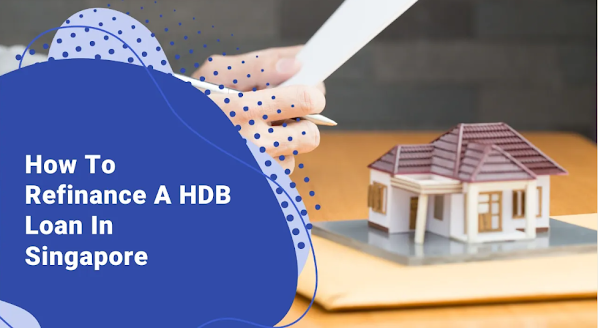How to Apply for Reverse Mortgage in Singapore
A reverse mortgage is a unique financial product that allows homeowners to tap into their home equity without having to sell their property or make monthly mortgage payments. This can be an attractive option for retirees looking to supplement their income. In this article, we will explore the process of applying for a reverse mortgage in Singapore, detailing each step and highlighting key considerations. We will also discuss related concepts such as house refinancing in Singapore, home equity loans, and mortgage rates.
Understanding Reverse Mortgages in Singapore
A reverse mortgage in Singapore allows homeowners, typically seniors, to convert part of the equity in their homes into cash. Unlike a traditional home equity mortgage, the loan is repaid when the homeowner sells the house, moves out permanently, or passes away. This financial tool can provide much-needed funds for living expenses, healthcare, or other needs during retirement.
Eligibility Criteria
To apply for a reverse mortgage in Singapore, homeowners must meet specific eligibility criteria:
- Age Requirement: The homeowner must be at least 55 years old.
- Property Ownership: The applicant must own a private property or HDB flat with a substantial amount of equity.
- Property Value: The home must meet the minimum property value set by the lender.
- Primary Residence: The property must be the homeowner’s primary residence.
Steps to Apply for a Reverse Mortgage
If you’re looking forward to apply for a reverse mortgage in Singapore, all you need to do is follow these simple steps:
- Assess Your Financial Situation
Before applying for a reverse mortgage, it’s crucial to evaluate your financial situation. Consider your current income, expenses, and long-term financial goals. This will help determine if a reverse mortgage is the right option for you.
- Research and Compare Lenders
Various financial institutions offer reverse mortgages in Singapore. Research and compare different lenders to find the best terms and conditions. Pay close attention to the mortgage interest rates in Singapore, as these will affect the overall cost of the loan.
- Consult a Financial Advisor
A reverse mortgage is a significant financial decision that requires careful consideration. Consulting a financial advisor can provide valuable insights and help you understand the implications of taking out a reverse mortgage. They can also explain alternatives such as home equity loans in Singapore.
- Complete the Application
Once you have chosen a lender, you will need to complete the reverse mortgage application. This typically involves providing detailed information about your financial situation, property, and personal details. Be prepared to submit documentation such as proof of income, property valuation reports, and identification.
- Property Appraisal
The lender will conduct a property appraisal to determine the current market value of your home. This appraisal is crucial as it affects the amount of money you can borrow through the reverse mortgage. Ensure that your property is well-maintained to achieve a favourable appraisal.
- Underwriting and Approval
After the appraisal, the lender will review your application and conduct underwriting to assess your eligibility. This process involves verifying your financial information, checking your credit history, and ensuring that you meet all the necessary criteria. Once approved, the lender will offer you the reverse mortgage terms and conditions.
- Review and Acceptance
Carefully review the reverse mortgage offer, paying close attention to the interest rates, fees, and repayment terms. It’s essential to understand all aspects of the loan agreement before accepting. If you have any doubts, consult your financial advisor or seek legal advice.
- Disbursement of Funds
Upon acceptance, the lender will disburse the funds according to the agreed terms. You can receive the money as a lump sum, regular monthly payments, a line of credit, or a combination of these options. Choose the disbursement method that best suits your financial needs and goals.
Key Considerations
While at it, do not forget to pay close attention to the below-mentioned points:
- Impact on Inheritance
A reverse mortgage can affect the inheritance you leave to your heirs. Since the loan is repaid from the sale of your home, there may be less equity left for your beneficiaries. It’s important to discuss this aspect with your family and consider their needs and expectations.
- Changes in Mortgage Rates
Mortgage rates in Singapore can fluctuate, affecting the overall cost of a reverse mortgage. Some reverse mortgages offer fixed rates, while others have variable rates. Understanding how these rates work and their potential impact on your loan is crucial.
- Alternative Options
Consider alternative options such as house refinancing in Singapore or equity loans. Refinancing your existing mortgage or taking out a home equity mortgage can provide funds while retaining more control over your home’s equity. Compare these options with a reverse mortgage to determine the best solution for your financial situation.
Refinance home loan to lower the interest rate, decrease the size of your monthly payments and build equity in your home faster. Your home equity acts like an asset for you and your heirs.
Applying for a reverse mortgage is a multi-step process that requires careful consideration and planning. By understanding the eligibility criteria, researching lenders, and consulting with mortgage brokers, you can make an informed decision that aligns with your financial goals. Keep in mind the impact on your inheritance and the potential changes in mortgage interest rates. With the right approach, a reverse mortgage can provide a valuable source of income during retirement, helping you maintain financial stability and peace of mind.



Comments
Post a Comment